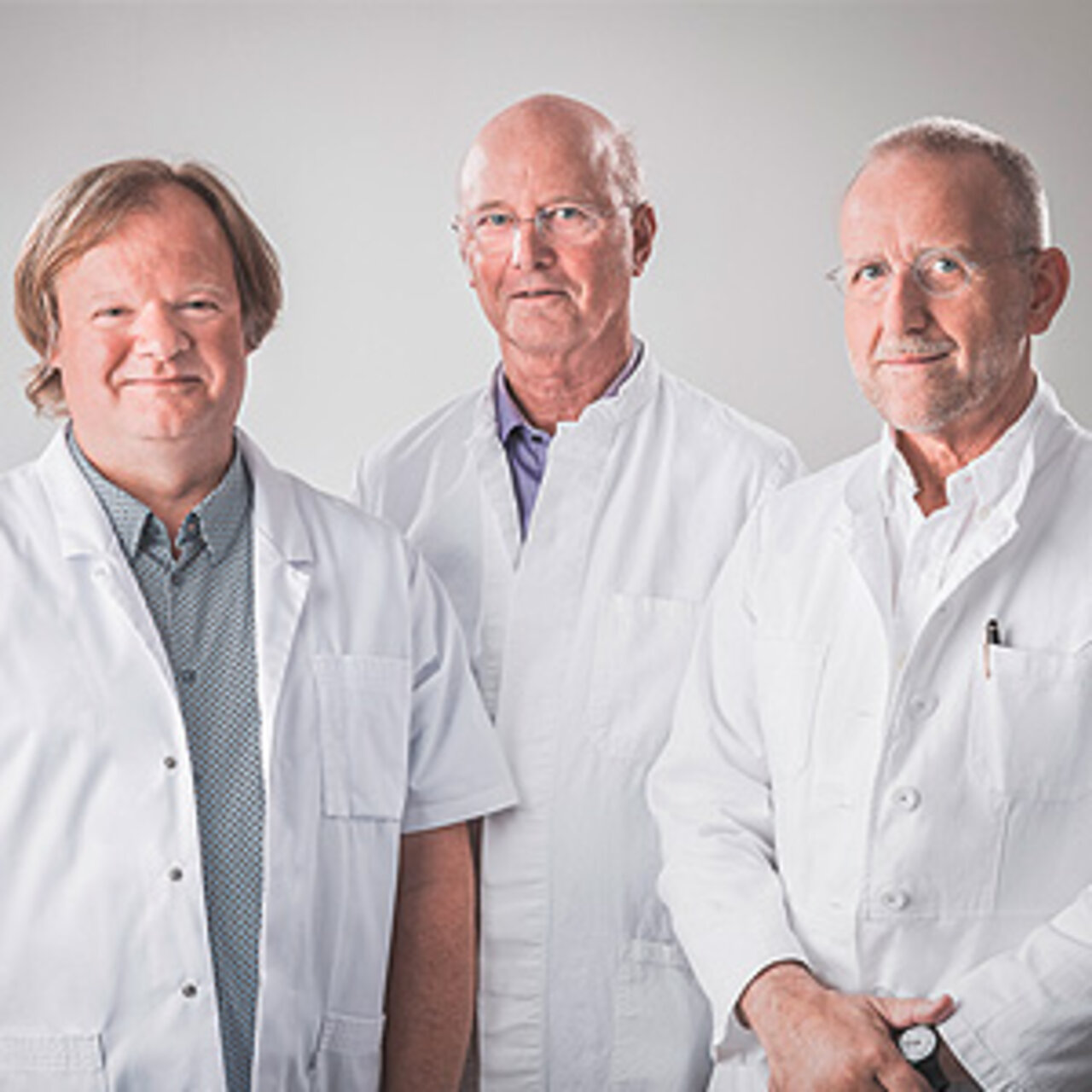Specialists in Salivary Gland Cancer
6 Specialists found
Information About the Field of Salivary Gland Cancer
What Is Salivary Gland Cancer?
Salivary gland cancer refers to malignant tumors of one or more salivary glands. A distinction is made between the three paired significant parotid glands, submandibular glands, and sublingual glands, as well as numerous minor salivary glands, all of which secrete saliva into the oral cavity.
Malignant tumors of the salivary glands are rarer than benign ones. Still, the general rule is that the smaller the affected salivary gland, the higher the likelihood of a malignant tumor. The most affected are the parotid glands located on either side in front of the ear.
Symptoms and Causes
Benign and malignant tumors are initially noticeable as nodular tissue changes usually can be palpated by the affected patients themselves. These nodules grow slowly and are generally painless but can cause problems with swallowing or speaking when they reach a specific size.
The characteristic difference of a malignant tumor is that it aggressively grows into adjacent tissues, causing more widespread symptoms. The facial nerve, which runs directly through the parotid gland, is particularly commonly affected. A malignant tumor's damage to this nerve results in limited or even paralyzed facial expression on the affected side. As a result, patients with the affected side can no longer frown or smile, for example, and in addition, the corner of the mouth usually hangs down.
The causes can be varied and have not been conclusively scientifically proven. However, it is assumed that several factors play a role in the development of cancer.
Risk factors are smoking and infections with the HPV virus. In addition, ionizing radiation, such as excessive X-rays, can also contribute to cancer development.
Diagnosis
After an extensive medical history is taken, the ear, nose, and throat regions are thoroughly palpated, with particular attention to nodular changes and enlarged lymph nodes.
Since, in most cases, the parotid gland is affected, the malignant tumor often grows into the adjacent external auditory canal. Therefore, as a first examination, an ear microscope can check the external auditory canal.
An ultrasound device is used to examine the tumor directly and better assess its extent as a further diagnostic examination. In addition, ultrasonography assists in sampling tumor tissue using a fine needle. The removed tissue is sent to the pathology department and examined under a microscope. Only the final microscopic evaluation can confirm the diagnosis of cancer.
However, to quantify the tumor progress more precisely, CT and MRI examinations become necessary. These imaging techniques provide physicians with detailed cross-sections (tomographies) of the affected tissues, allowing very precise examination of the size and involvement of adjacent tissues.
Treatment and Therapy
To treat cancer, the affected salivary gland must be removed entirely. For the success of this operation, it is particularly important to remove all tissues that are affected by tumor cells. If possible, unaffected tissues, such as the facial nerve, are preserved, and only the tumor around the outside is removed, but this can often only be decided during surgery.
Because salivary gland cancer often involves the lymph nodes and other tissues of the neck, a procedure called neck dissection may be indicated for advanced tumors with or without proven involvement of the lymph nodes. In this procedure, the surgeon removes all lymph nodes of the neck region (either unilaterally or bilaterally) and other muscle, vascular, and nerve tissue.
To increase the chances of recovery, supportive radiation therapy may be used in addition to surgical removal.
If the cancer is far advanced and has already spread to distant organs (metastases) at diagnosis, chemotherapy is the primary treatment. The patient is administered drugs that, on the one hand, stop the growth of cancer cells, but on the other hand, have numerous side effects, such as nausea, dry mouth, increased risk of infection, or hair loss.
Chances of Cure and Prognosis
The earlier the tumor is discovered and treated, the better the chances of a cure. Therefore, it is important for patients who find a nodular change to see a doctor immediately.
If the malignant tumor is detected early and has not metastasized at this time, the prognosis is favorable with successful surgical removal. However, tumor regrowth is rare and often due to incomplete surgical removal. For this reason, follow-up care occupies a central pillar in cancer management, as this is the only way to treat any recurrence promptly.
Which Doctors and Clinics Are Specialized in Salivary Gland Cancer?
Patients with symptoms described above should see a specialist in otolaryngology. In addition, it is advisable not to wait too long before seeing a doctor ensure early confirmation and, if necessary, rapid initiation of therapy.
We will help you find an expert for your condition. All listed doctors and clinics have been checked by us for their outstanding specialization in salivary gland cancer and are awaiting your inquiry or treatment request.




